Synonym Visualizer - Synonym Analysis and Visualization

Hi! Let's explore synonyms with clarity and visuals. Ask away!
See the difference in synonyms, powered by AI
Can you show the difference between 'happy' and 'joyful'?
What's the difference between 'fast' and 'quick'?
Explain 'smart' vs 'intelligent' with visuals.
How are 'big' and 'large' different?
Get Embed Code
Overview of Synonym Visualizer
Synonym Visualizer is designed to clarify the subtle distinctions between synonyms, enhancing language understanding through detailed explanations and visual aids. This tool differentiates similar words by exploring their definitions, connotations, and specific contexts of use. For example, consider the words 'happy' and 'content.' While both describe a state of pleasure, 'happy' often implies a more active, exuberant feeling, compared to the more passive, serene 'content.' Visual aids might depict a person celebrating at a party to represent 'happy' versus someone reading quietly at home for 'content,' illustrating the contextual nuances. Powered by ChatGPT-4o。

Key Functions and Practical Applications
Definition Clarification
Example
Words like 'slim' and 'thin' both refer to a lack of bulk, but 'slim' carries a more positive connotation, often used to describe attractiveness. Conversely, 'thin' can be neutral or slightly negative.
Scenario
In a dietary blog, using 'slim' can appeal more positively to readers than 'thin,' impacting reader perception and engagement.
Visual Differentiation
Example
The terms 'antique' and 'old.' 'Antique' generally refers to something that has value due to its age and quality, often shown through visuals of well-preserved, stylish vintage furniture. 'Old' simply describes something that has existed for a long time, often depicted as worn or outdated.
Scenario
An interior design application can use this distinction to filter search results more accurately, helping users find either valuable antiques or items that are just old, depending on their project needs.
Contextual Usage Guidance
Example
Exploring the difference between 'confident' and 'arrogant.' 'Confident' implies a positive, secure self-assurance, shown in visuals of a person calmly presenting in a meeting. 'Arrogant' suggests an overbearing self-importance, depicted with a person dominating a conversation.
Scenario
For a writer crafting a character in a novel, understanding these nuances helps in accurately portraying traits that influence the reader's perception of the character.
Target User Groups
Language Learners
Students and individuals learning English as a second language would benefit from detailed explanations of synonyms to enhance vocabulary and grasp subtle language nuances, improving both their speaking and writing skills.
Professional Writers and Editors
Authors, journalists, and content creators can refine their word choice for more precise and impactful writing. Understanding the fine differences between synonyms helps them convey exact emotions and thoughts, crucial in narrative and expository writing.
Educators and Academics
Teachers and scholars can use this tool to design clearer, more effective teaching materials that highlight the distinctions in word usage, aiding in teaching English language and literature more effectively.

How to Use Synonym Visualizer
Start your session
Navigate to yeschat.ai for a free trial that doesn't require login or a ChatGPT Plus subscription.
Choose a word or phrase
Input a word or phrase for which you need synonyms or a deeper understanding of its meanings and nuances.
Analyze the results
Review the visual and textual information provided to differentiate between synonyms, including definitions, connotations, and usage examples.
Use contextual filters
Apply contextual filters to refine the synonyms and meanings based on specific uses like academic writing, business communication, or creative writing.
Explore further
Use the tool repeatedly for different words and phrases to expand your vocabulary and enhance your language proficiency.
Try other advanced and practical GPTs
Synonym Differentiator
Unravel Words with AI-Powered Insights
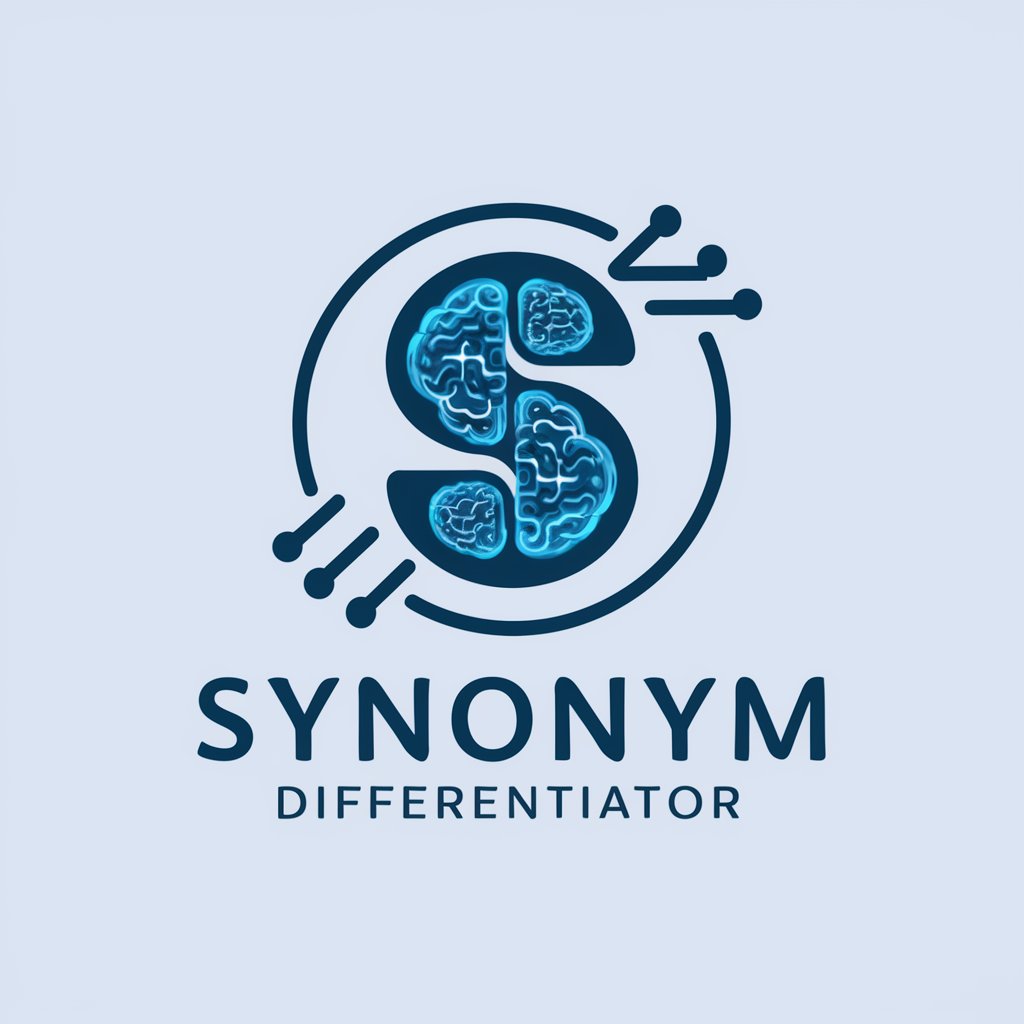
orson kaleb benyatov
Envision More with AI Power
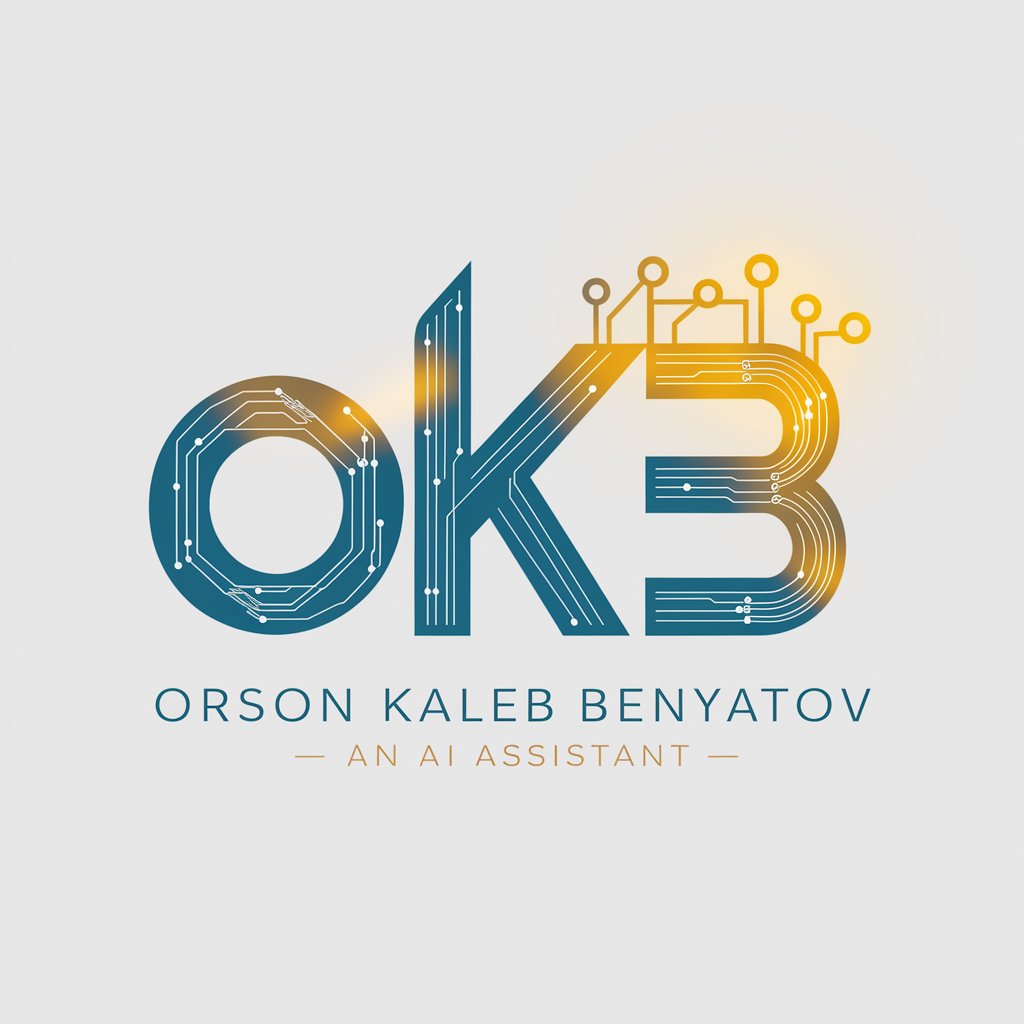
Fungi
Unlocking the Potential of Fungi with AI

Mandala Vizir
Optimize power dynamics with AI

Batman
Empower Your Writing with AI

Parody Batman
Unleash creativity with a humorous twist

SynoNymo
Empower Your English with AI
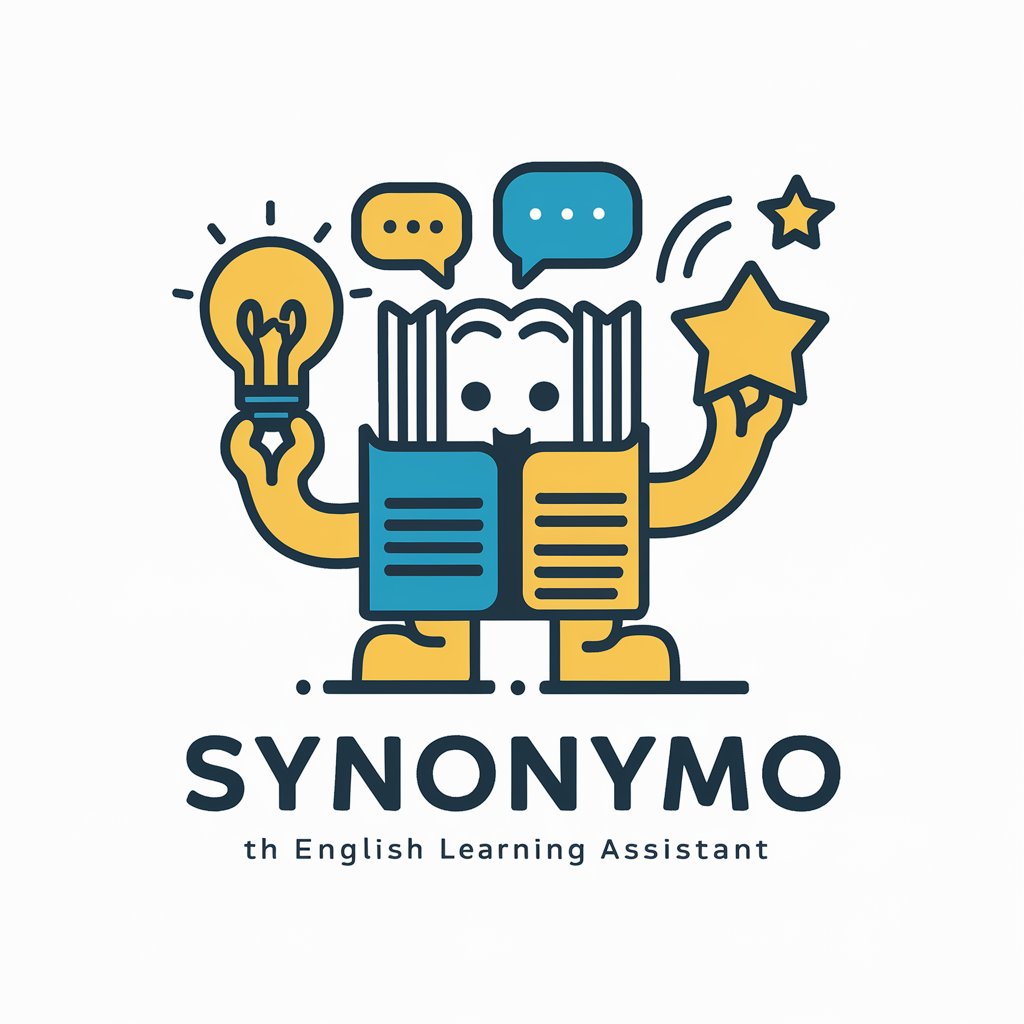
Synonym Finder
Expand your vocabulary effortlessly!
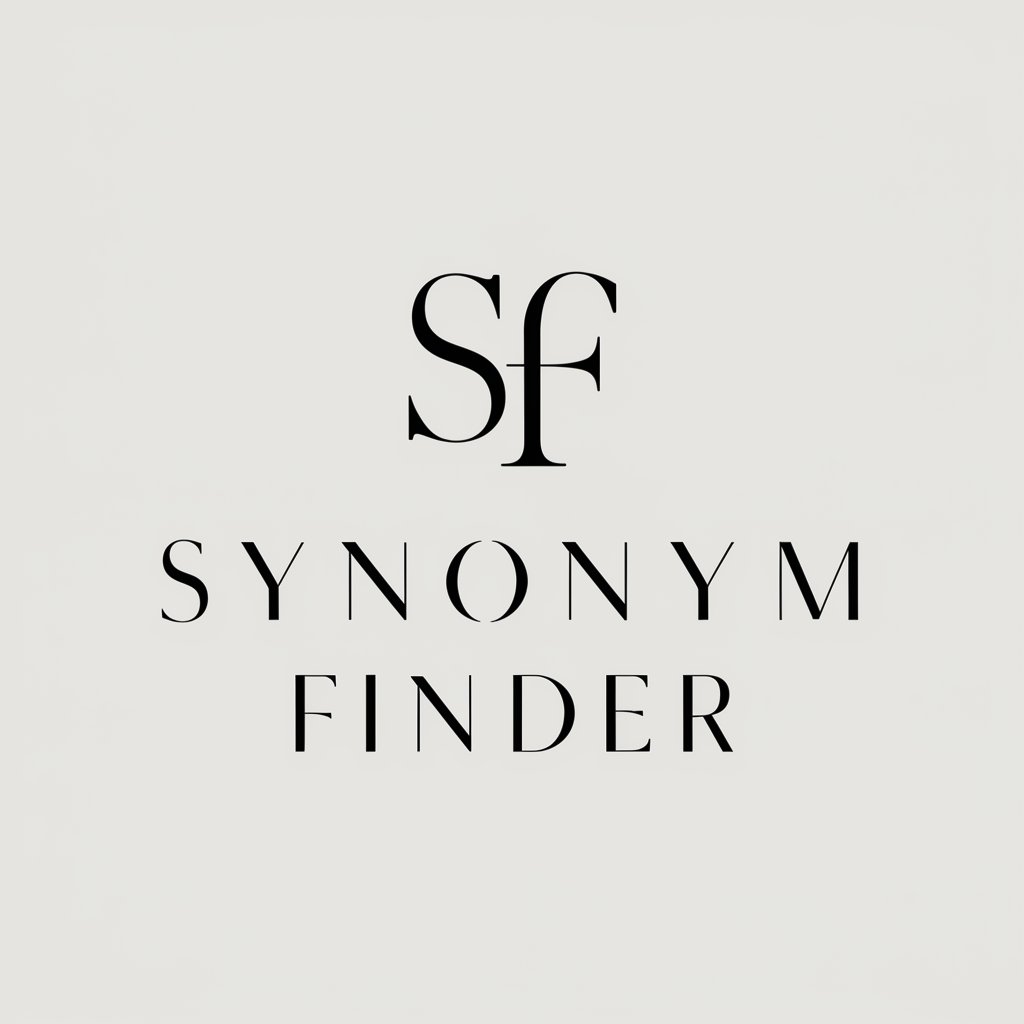
Quantom Wizard
Empowering Insights with AI

Font Stylist
AI-powered font and design recommendations for t-shirts

Kitchen Conversions
Convert, Substitute, Cook — Effortlessly!

Nutriguide
Transform Eating with AI-Powered Nutrition
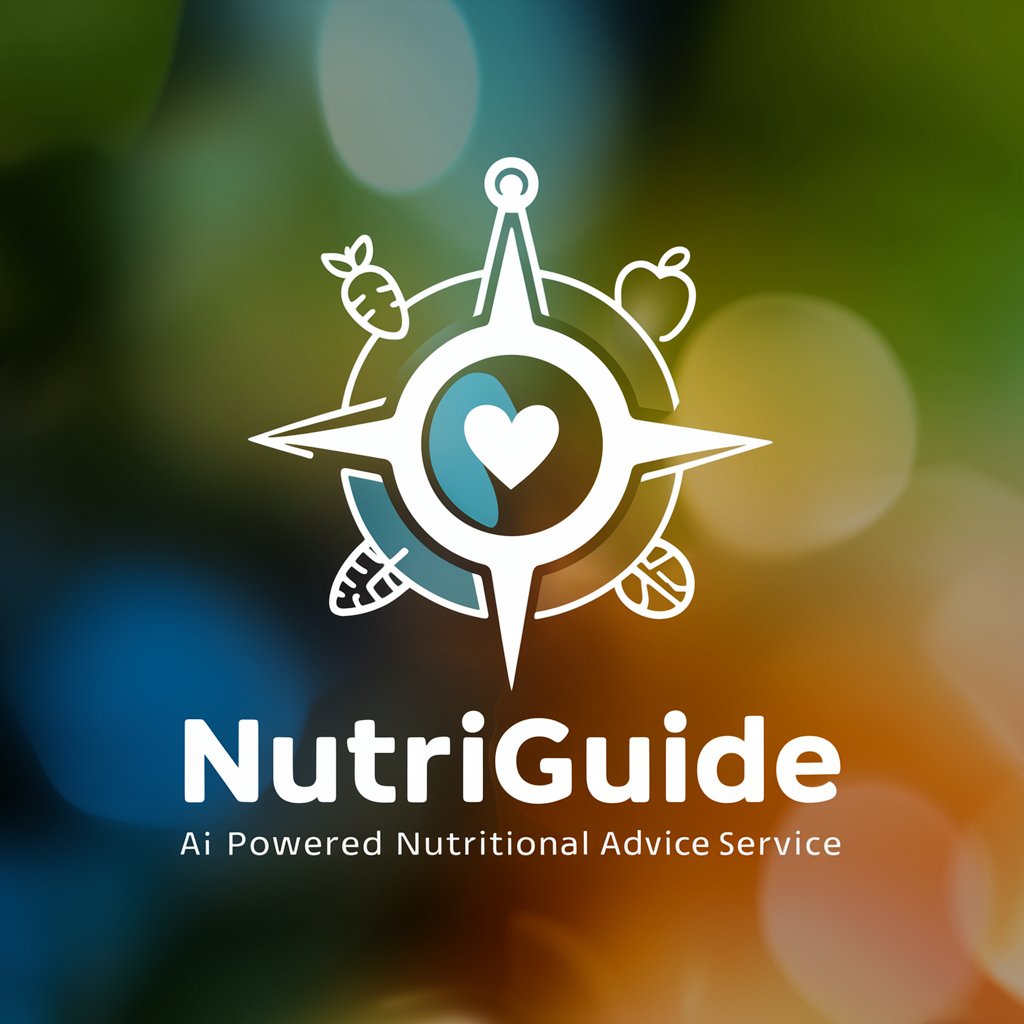
Frequently Asked Questions About Synonym Visualizer
What is Synonym Visualizer?
Synonym Visualizer is a tool designed to help users understand the subtle differences and nuances between synonyms through visual aids and detailed explanations.
How does Synonym Visualizer help in writing?
It offers nuanced explanations and usage examples, helping users choose the right word for the right context, thereby improving the precision and clarity of their writing.
Can Synonym Visualizer be used for learning languages?
Absolutely, it's a valuable resource for language learners to expand their vocabulary and understand the contextual use of words in a new language.
Is Synonym Visualizer suitable for professional use?
Yes, professionals in fields like law, academia, and business can use it to refine their verbal and written communication skills.
What makes Synonym Visualizer unique from other synonym tools?
It combines AI technology with visual aids to provide deeper insights into word usage, unlike traditional synonym dictionaries that offer limited context.
